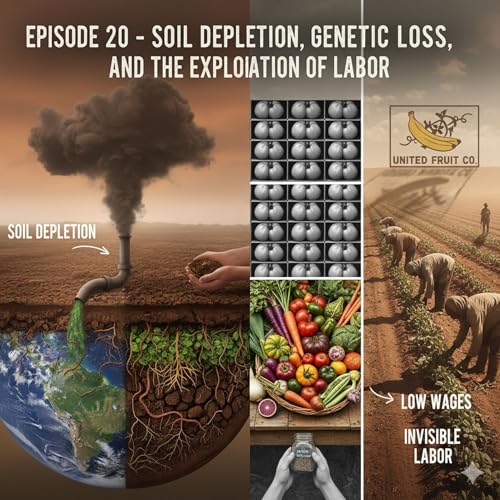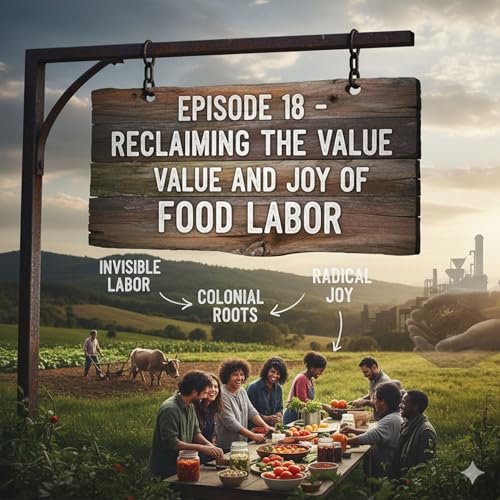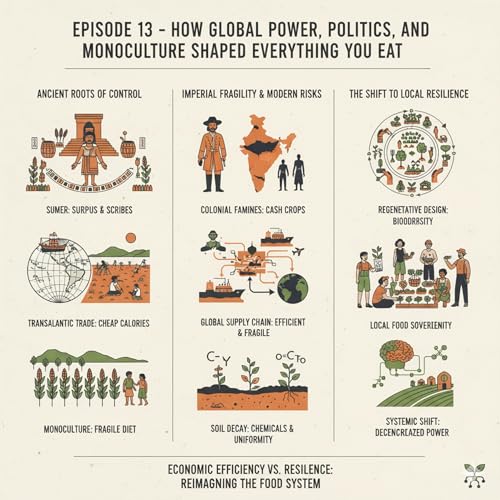This episode is structured around the three main hidden costs of cheap, uniform, modern produce, starting with the land itself. The first cost is the depletion of the land, as colonial and later industrial practices have treated soil like a mine, taking nutrients without giving back. The invention of the Haber-Bosch process for synthetic nitrogen fertilizer fundamentally broke the ecological limits of agriculture, allowing farmers to bypass natural cycles and over-fertilize, which disrupts the soil microbiome and releases stored carbon into the atmosphere. The sustainable alternative is regenerative agriculture, which focuses on "teaming with microbes" by using cover crops and compost to build soil health, sequester carbon, and restore the vital fungal-to-bacterial ratio, reducing the need for chemical inputs.
The second cost is the narrowing of our choices, driven by the relentless economic pressure on farmers to maximize yield and uniformity for the bulk commodity and processing industries. This has led to a disastrous genetic loss, with some estimates suggesting a 90% reduction in crop varieties since the last century, which creates massive risk and sacrifices flavor and nutritional complexity. The demands of the processing industry, including engineered products like ground beef, prioritize consistent fat content and texture over maximum nutritional value, locking us into consuming standardized inputs.
The third cost is the exploitation of human labor, as large-scale monoculture has historically and currently relies on forced or cheap, exploitable labor. This historical pattern, which goes back to Spanish silver mining and the forced mita labor system, is echoed today where corporate power, exemplified by the role of the United Fruit Company in the 1954 Guatemalan coup, ensures cheap commodity access by intervening in sovereign nations. The modern result is a "normalized geography of farmworker invisibility," where vulnerable immigrant laborers, even on smaller farms, live in fear and isolation, with their low wages—and thus their precarity—acting as a hidden subsidy for the entire cheap food system. The episode concludes by advocating that choosing diversity and supporting local, regenerative farming is an act of reclaiming autonomy and resisting this damaging industrial logic.
 35 mins
35 mins 24 mins
24 mins 28 mins
28 mins Oct 13 202526 mins
Oct 13 202526 mins 30 mins
30 mins 24 mins
24 mins 31 mins
31 mins 36 mins
36 mins

